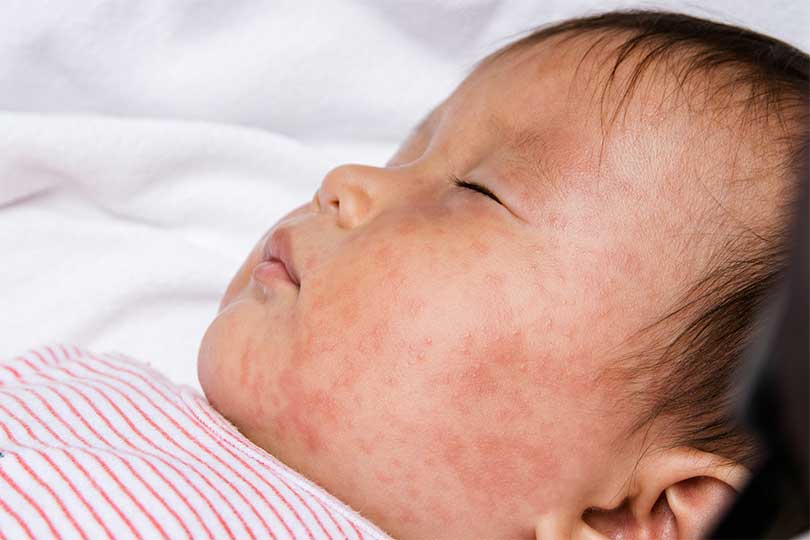Measles: Symptoms, Risks and Prevention

Measles is a highly contagious viral infection that can cause serious health complications.
Below are common questions about measles, including how it spreads, what symptoms to look out for and how it can be prevented through vaccination.
- What should you know about measles?
- What are the symptoms of measles infection?
- What are the complications of measles?
- Who should be vaccinated against measles?
- Who should not get an MMR shot?
- Am I protected from measles?
- What if I don’t know if I had an MMR shot?
- How can measles be treated?
- What do I do if I am exposed to measles and am not immunized?
- What do I do if I think I have measles?
- Why are vaccines so important to prevent measles?
- Where can I learn more?
Frequently Asked Questions About Measles
What should you know about measles?
- Measles can make people very sick.
- The MMR shot is the best way to protect against measles.
- Measles is very contagious and spreads fast.
- Measles can live for two hours in the air in a room.
What are the symptoms of measles infection?
- Fever
- Cough
- Runny nose
- Red, watery eyes
- Rash (the rash starts after the other symptoms)
What are the complications of measles?
Measles is a serious disease that can cause:
- Pneumonia
- Brain swelling and seizures
- Deafness and blindness
- Death
Who should be vaccinated against measles?
- Children need two MMR shots
- One at 12-15 months of age
- One at 4-6 years
- Adults need one MMR shot. Some adults need two MMR shots, including the following populations:
- College students
- Military recruits
- Health care workers
- Travelers to other countries
Who should not get an MMR shot?
- Children under 6 months old.
- Anyone with a weak immune system (your doctor will tell you this).
- Anyone who is pregnant.
- Anyone with a severe allergy to the MMR shot (this is very rare).
Am I protected from measles?
Here is what you need to be protected:
- You need two (2) measles vaccines, if you are:
- A school-aged child (grades K-12).
- An adult who will be in a high-risk setting (including college students, health care workers and international travelers).
- You need one (1) measles vaccine, if you are:
- A baby aged 6-11 months.
- A preschool-aged child.
- An adult who will not be in a high-risk setting for measles transmission.
- If you have had measles before, you are protected.
- If you have a lab test confirming that you are immune to measles, you are protected.
- If you were born before 1957, you are protected.
What if I don’t know if I had an MMR shot?
- You should get an MMR shot if you can’t find out if you had one. It is safe even if you already had the shots.
How can measles be treated?
- There is no treatment for measles.
- We can only treat the symptoms while hoping that you get better.
What do I do if I am exposed to measles and am not immunized?
- Call your doctor as soon as you find out.
- If you are able to seek medical care as soon as possible, you may be able to receive some protection.
What do I do if I think I have measles?
- Stay home.
- Stay in a room away from the people you live with.
- Do not go anywhere until five days after the rash appears.
- If you have trouble breathing or if you need to go to the hospital:
- Call first and tell them you think you have measles and are having a hard time breathing.
- Wear a mask when you arrive at the hospital.
- You might be told to enter through a certain door to keep other patients safe.
Why are vaccines so important to prevent measles?
- It works very well to protect you.
- It stops measles from spreading.
- It helps you protect the vulnerable people who can't get the shot.
Where can I learn more?
